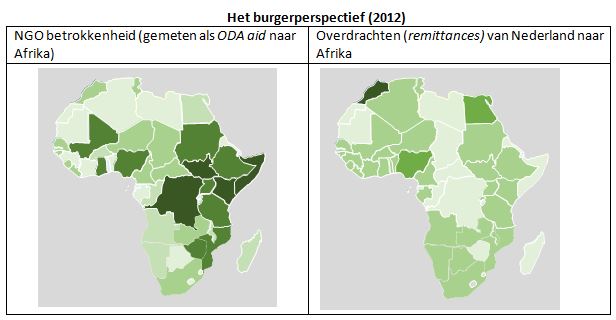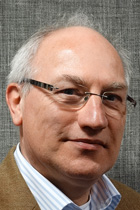ASCL & PrC Working Paper: Een pleidooi voor Duurzame Diplomatie

In een recent verschenen notitie van de Adviesraad Internationale Vraagstukken wordt een pleidooi gehouden voor ‘diplomatie van duurzame ontwikkeling’. Het Nederlandse buitenlandse beleid heeft de laatste jaren sterk ingezet op zogenaamde ‘economische diplomatie’. Daarmee lijkt een stap gezet te zijn in de richting van een vorm van diplomatie waarbij het Nederlandse economische belang meer centraal staat. Maar welke belangen zijn dat dan? Naast bezuinigingen worden tegelijkertijd nieuwe beleidsinstrumenten ontwikkeld waarvan de effectiviteit nog bewezen moet worden. Deze dubbelslag vertegenwoordigt een (her)oriëntatie op de diplomatieke inzet van Nederland, welke vooral gevolgen lijkt te hebben voor het ontwikkelingsbeleid. Dat levert verhitte debatten op, zeker wanneer de financiële consequenties van dit beleid voor bestaande belangengroepen duidelijk worden. Deze discussie is weinig productief zolang een meer integrale en strategische visie op de beoogde diplomatieke inzet niet gedeeld wordt. Wat kan derhalve als gezamenlijk (bilateraal) belang van zowel Nederland als de ontvangende landen worden gezien? Juist voor een klein land als Nederland is een integrale – slimme, pragmatische, maar ook doelgerichte en duurzame - benadering essentieel. Een preciezere framing van het beleid is daarom gewenst: van economische diplomatie, waarbij het er niet toe doet welke handelsstromen op gang worden gebracht (zolang het maar veel is), naar duurzame diplomatie, ofwel ‘diplomatie van duurzame ontwikkeling’, waarbij veel meer wordt nagedacht over de kwaliteit, de doelstelling en de lange termijn invulling van deze relaties.
This paper has been published as Working Paper 136.
Read the Working Paper (in Dutch)

This Working Paper is a co-production with the Partnerships Resource Centre Erasmus University Rotterdam.
Author(s) / editor(s)
About the author(s) / editor(s)
 Rob van Tulder is a professor of international business-society management at Rotterdam School of Management, Erasmus University (RSM). He has published extensively on the topics of European business, multinationals, high-tech industries, corporate social responsibility, issues management, skills, network strategies, smaller industrial countries (welfare states) and European Community/Union policies. He has received numerous accolades for his intellectual and societal contributions.
Rob van Tulder is a professor of international business-society management at Rotterdam School of Management, Erasmus University (RSM). He has published extensively on the topics of European business, multinationals, high-tech industries, corporate social responsibility, issues management, skills, network strategies, smaller industrial countries (welfare states) and European Community/Union policies. He has received numerous accolades for his intellectual and societal contributions.
His latest books include Corporate Responsibilities in Turbulent Times (also in Chinese), Tipping point sustainability (in Dutch: Duurzaam ondernemen waarmaken), International Business-Society Management: Linking Corporate Responsibilities, and Globalization and Skill Sheets: An Integrated Approach to Research, Study and Management.
Professor van Tulder is co-founder of RSM's Department of Business-Society Management, a world-leading department on the issues surrounding sustainability. The department offers a highly successful master's specialising in sustainability.
 Ton Dietz has been Director of the African Studies Centre Leiden since 1 May 2010 and is also Professor of the Study of African Development at Leiden University. He gave his inaugural address entitled ‘Silverlining Africa’ on 14 January 2011.
Ton Dietz has been Director of the African Studies Centre Leiden since 1 May 2010 and is also Professor of the Study of African Development at Leiden University. He gave his inaugural address entitled ‘Silverlining Africa’ on 14 January 2011.
Keywords: Human geography, political environmental geography, geography and developing countries, political geography of Africa, poverty analysis, rural development, food security and agrohubs, pastoralism, land and water conflict, dry-land development, impact of climate change, political ecology of forest areas, development aid, participatory assessment of development and change, participatory evaluation of development assistance, civil society, NGOs, Africa and the multi-polar world, geopolitics.
Ton Dietz was appointed Professor of Human Geography at the University of Amsterdam in 1995. From 2002 until 2007 he was a (part-time) Professor of Social Sciences at Utrecht University and the Scientific Director of CERES, the Research School for Resource Studies for Development. He was the Scientific Director of AMIDSt, Amsterdam Research Institute for Metropolitan and International Development Studies in 2008 and 2009.

